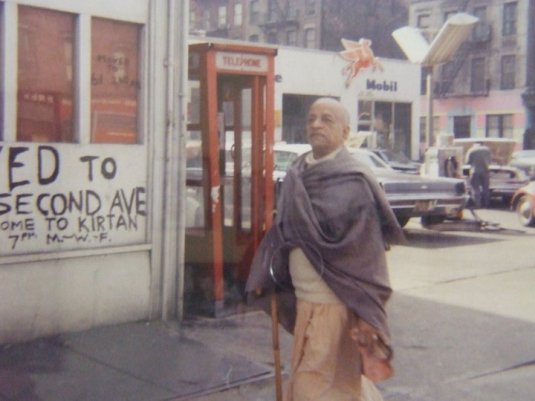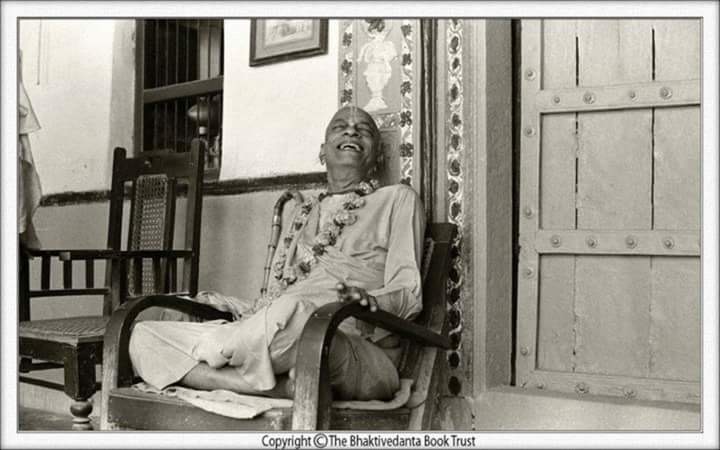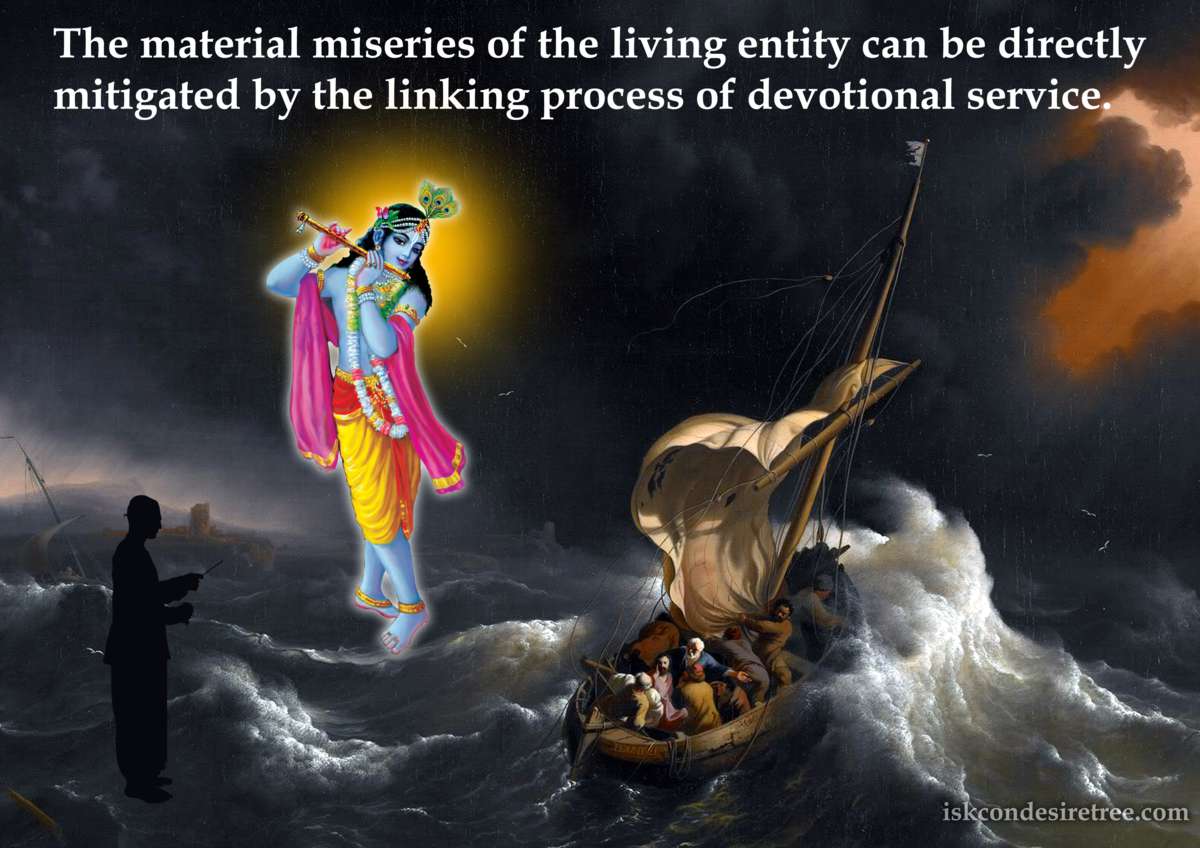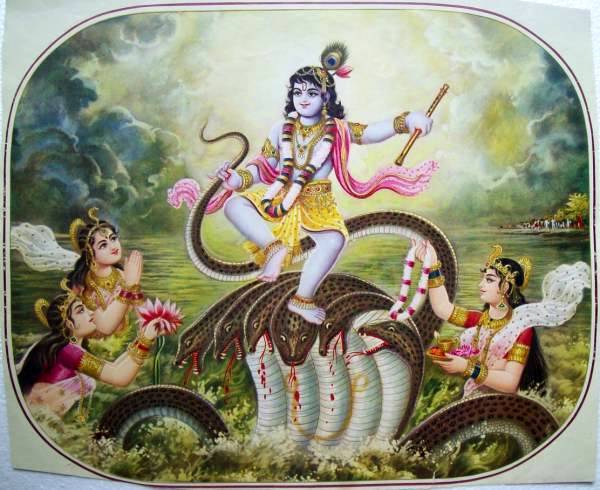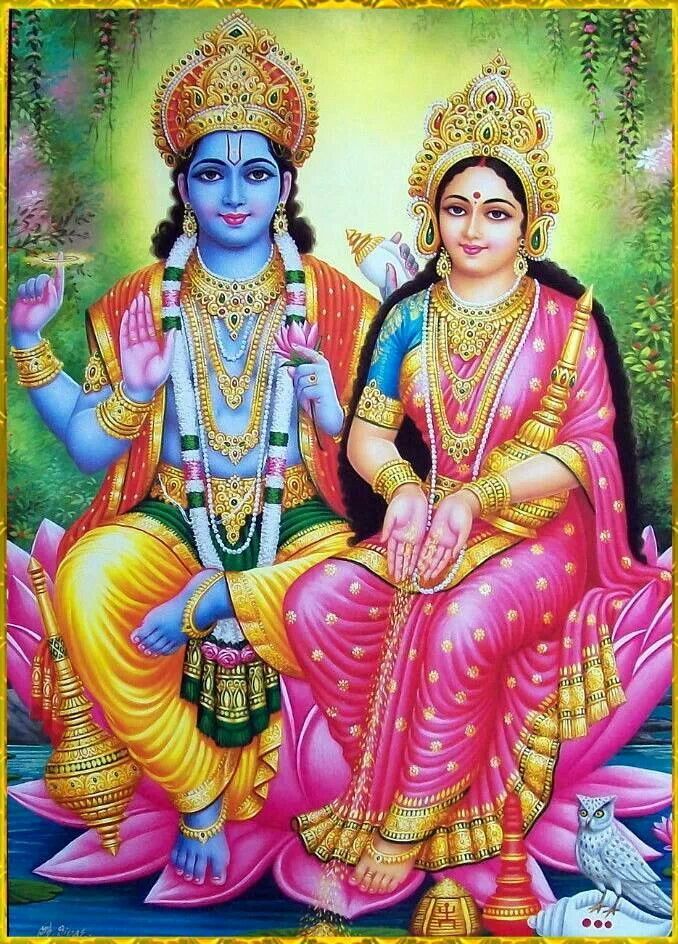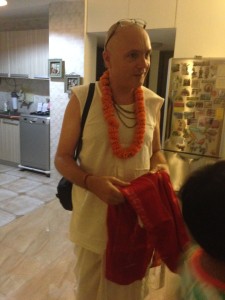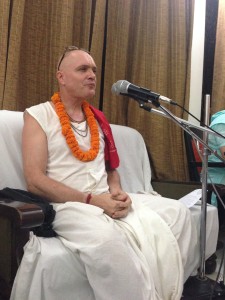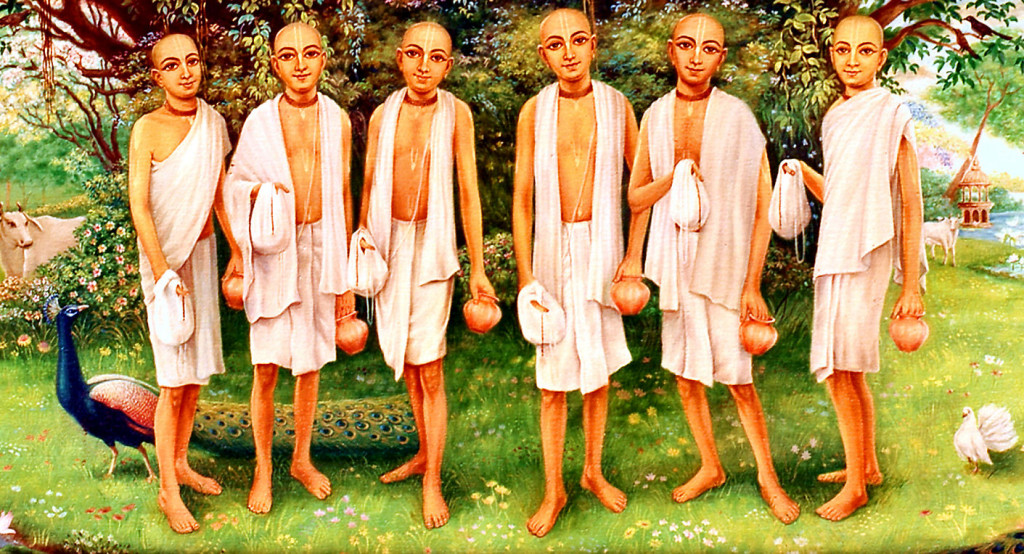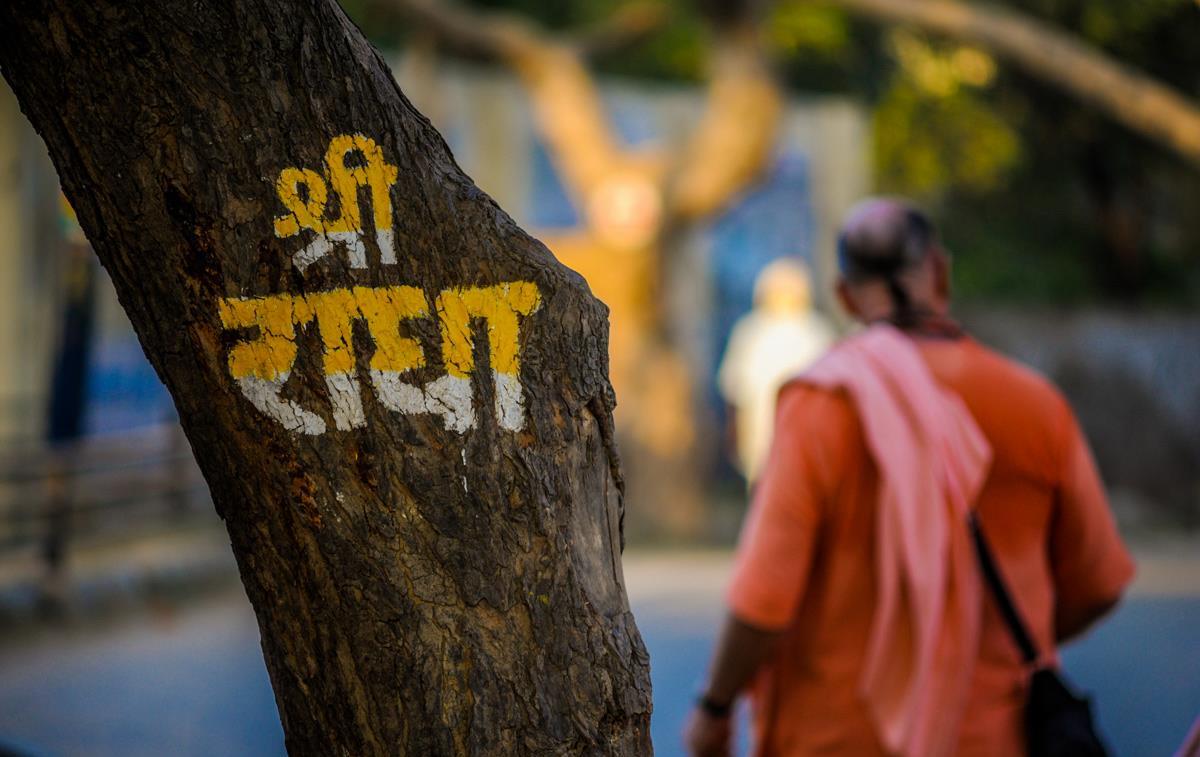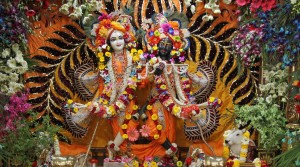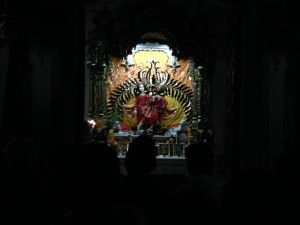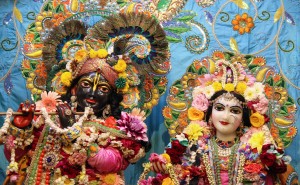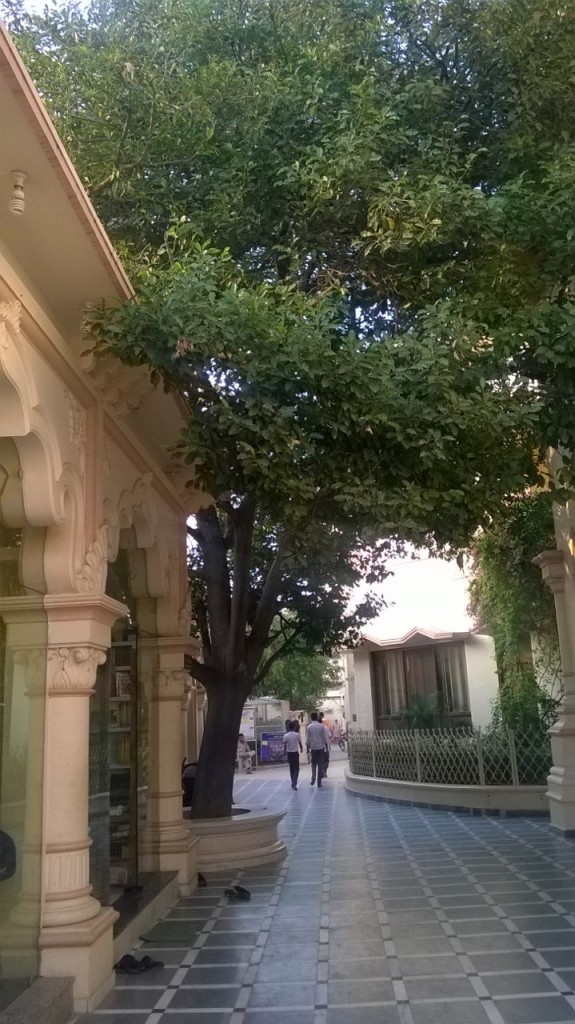Hare Krishna.
13th August, 2015. Gurgaon

It was today, exactly 50 years ago, that Srila Prabhupada left for USA.
Srila Prabhupada, founder acharya of ISKCON, navigated 36 days through the tumultuous ocean on a cargo steamship, Jaladuta on 13th August 1965, to the western world with a mission to propagate Krishna Consciousness in the western world.
For next three days I will post parts from the 11th and 12th chapter of Prabhupada Lilamrita which describe the days leading to his departure for USA. I will also write three aspects of his transcendental and multifaceted personality copied from his website.
Revolutionary: Srila Prabhupada created a worldwide spiritual and cultural revolution that encouraged many people to seriously take to the process of god consciousness. He started this revolution in New York, because he felt that America was where he would find intelligent young people that would be receptive to the timeless, authoritative spiritual instruction of the Vedic scriptures.
Self-Realised: Acting on the platform of his spiritual identity, Srila Prabhupada completely dedicated his life to serve God. He was able to produce phenomenal accomplishments and transform the consciousness of people only because he was on the highest state of self-realisation and therefore divinely empowered. Such self-realised souls in the world are very rare.
Fearless: Srila Prabhupada was named Abhay Charan at birth, which means ‘one who is fearless having taken shelter at the feet of God’. The significance of this name was revealed in his bold mission with unflinching trust in God, despite great personal hardship. He explained that fear is due to a lack of understanding of the illusory nature of the material world.
Śrīla Prabhupāda-līlāmṛta Vol. 1: A Lifetime in Preparation: India 1896-1965 Vol 1, Chapter 11
I planned that I must go to America. Generally they go to London, but I did not want to go to London. I was simply thinking how to go to New York. I was scheming, “Whether I shall go this way, through Tokyo, Japan, or that way? Which way is cheaper?” That was my proposal. And I was targeting to New York always. Sometimes I was dreaming that I have come to New York. -Śrīla Prabhupāda
With the manuscript for Volume Three complete and with the money to print it, Bhaktivedanta Swami once again entered the printing world, purchasing paper, correcting proofs, and keeping the printer on schedule so that the book would be finished by January 1965. Thus, by his persistence, he who had almost no money of his own managed to publish his third large hardbound volume within a little more than two years.
At this rate, with his respect in the scholarly world increasing, he might soon become a recognized figure amongst his countrymen. But he had his vision set on the West. And with the third volume now printed, he felt he was at last prepared. He was sixty-nine and would have to go soon. It had been more than forty years since Śrīla Bhaktisiddhānta Sarasvatī had first asked a young householder in Calcutta to preach Kṛṣṇa consciousness in the West. At first it had seemed impossible to Abhay Charan, who had so recently entered family responsibilities. That obstacle, however, had long ago been removed, and for more than ten years he had been free to travel. But he had been penniless (and still was). And he had wanted first to publish some volumes of Śrīmad-Bhāgavatam to take with him; it had seemed necessary if he were to do something solid. Now, by Kṛṣṇa’s grace, three volumes were on hand.
Śrīla Prabhupāda: I planned that I must go to America. Generally they go to London, but I did not want to go to London. I was simply thinking how to go to New York. I was scheming, “Whether I shall go this way, through Tokyo, Japan, or that way? Which way is cheaper?” That was my proposal. And I was targeting to New York always. Sometimes I was dreaming that I have come to New York.
Then Bhaktivedanta Swami met Mr. Agarwal, a Mathurā businessman, and mentioned to him in passing, as he did to almost everyone he met, that he wanted to go to the West. Although Mr. Agarwal had known Bhaktivedanta Swami for only a few minutes, he volunteered to try to get him a sponsor in America. It was something Mr. Agarwal had done a number of times; when he met a sādhu who mentioned something about going abroad to teach Hindu culture, he would ask his son Gopal, an engineer in Pennsylvania, to send back a sponsorship form. When Mr. Agarwal volunteered to help in this way, Bhaktivedanta Swami urged him please to do so.
Śrīla Prabhupāda: I did not say anything seriously to Mr. Agarwal, but perhaps he took it very seriously. I asked him, “Well, why don’t you ask your son Gopal to sponsor so that I can go there? I want to preach there.”
But Bhaktivedanta Swami knew he could not simply dream of going to the West; he needed money. In March 1965 he made another visit to Bombay, attempting to sell his books. Again he stayed at the free dharmaśālā, Premkutir. But finding customers was difficult. He met Paramananda Bhagwani, a librarian at Jai Hind College, who purchased books for the college library and then escorted Bhaktivedanta Swami to a few likely outlets.
Mr. Bhagwani: I took him to the Popular Book Depot at Grant Road to help him in selling books, but they told us they couldn’t stock the books because they don’t have much sales on religion. Then we went to another shop nearby, and the owner also regretted his inability to sell the books. Then he went to Sadhuvela, near Mahalakshmi temple, and we met the head of the temple there. He, of course, welcomed us. They have a library of their own, and they stock religious books, so we approached them to please keep a set there in their library. They are a wealthy āśrama, and yet he also expressed his inability.
Bhaktivedanta Swami returned to Delhi, pursuing the usual avenues of bookselling and looking for whatever opportunity might arise. And to his surprise, he was contacted by the Ministry of External Affairs and informed that his No Objection certificate for going to the U.S. was ready. Since he had not instigated any proceedings for leaving the country, Bhaktivedanta Swami had to inquire from the ministry about what had happened. They showed him the Statutory Declaration Form signed by Mr. Gopal Agarwal of Butler, Pennsylvania; Mr. Agarwal solemnly declared that he would bear the expenses of Bhaktivedanta Swami during his stay in the U.S.
Śrīla Prabhupāda: Whatever the correspondence was there between the father and son, I did not know. I simply asked him, “Why don’t you ask your son Gopal to sponsor?” And now, after three or four months, the No Objection certificate was sent from the Indian Consulate in New York to me. He had already sponsored my arrival there for one month, and all of a sudden I got the paper.
At his father’s request, Gopal Agarwal had done as he had done for several other sādhus, none of whom had ever gone to America. It was just a formality, something to satisfy his father. Gopal had requested a form from the Indian Consulate in New York, obtained a statement from his employer certifying his monthly salary, gotten a letter from his bank showing his balance as of April 1965, and had the form notarized. It had been stamped and approved in New York and sent to Delhi. Now Bhaktivedanta Swami had a sponsor. But he still needed a passport, visa, P-form, and travel fare.
The passport was not very difficult to obtain. Krishna Pandit helped, and by June 10 he had his passport. Carefully, he penned in his address at the Rādhā-Kṛṣṇa temple in Chippiwada and wrote his father’s name, Gour Mohan De. He asked Krishna Pandit also to pay for his going abroad, but Krishna Pandit refused, thinking it against Hindu principles for a sādhu to go abroad-and also very expensive.
With his passport and sponsorship papers, Bhaktivedanta Swami went to Bombay, not to sell books or raise funds for printing; he wanted a ticket for America. Again he tried approaching Sumati Morarji. He showed his sponsorship papers to her secretary, Mr. Choksi, who was impressed and who went to Mrs. Morarji on his behalf. “The Swami from Vṛndāvana is back,” he told her. “He has published his book on your donation. He has a sponsor, and he wants to go to America. He wants you to send him on a Scindia ship.” Mrs. Morarji said no, the Swamiji was too old to go to the United States and expect to accomplish anything. As Mr. Choksi conveyed to him Mrs. Morarji’s words, Bhaktivedanta Swami listened disapprovingly. She wanted him to stay in India and complete the <it+>Śrīmad-Bhāgavatam. Why go to the States? Finish the job here.
But Bhaktivedanta Swami was fixed on going. He told Mr. Choksi that he should convince Mrs. Morarji. He coached Mr. Choksi on what he should say: “I find this gentleman very inspired to go to the States and preach something to the people there…” But when he told Mrs. Morarji, she again said no. The Swami was not healthy. It would be too cold there. He might not be able to come back, and she doubted whether he would be able to accomplish much there. People in America were not so cooperative, and they would probably not listen to him.
Exasperated with Mr. Choksi’s ineffectiveness, Bhaktivedanta Swami demanded a personal interview. It was granted, and a gray-haired, determined Bhaktivedanta Swami presented his emphatic request: “Please give me one ticket.”
– to be continued-
All glories to Srila Prabhupada.
All glories to Sri Guru and Gauranga.





